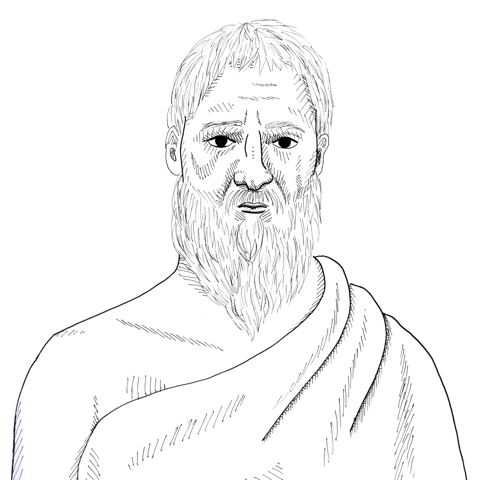
Plato warns of the people’s protector who, once having tasted blood, turns into a wolf and a tyrant (340s BC)
Found in: Dialogues, vol. 3 - Republic, Timaeus, Critias
In Book VIII of The Republic, Plato, in a dialogue with Glaucon, there is a discussion of how democracy turns into tyranny. In one section there is this exchange concerning the way the protector of the people changes into a tyrant wolf by using the courts to destroy his enemies:
Presidents, Kings, Tyrants, & Despots
And the protector of the people is like him; having a mob entirely at his disposal, he is not restrained from shedding the blood of kinsmen; by the favourite method of false accusation he brings them into court and murders them, making the life of man to disappear, and with unholy tongue and lips tasting the blood of his fellow citizens; some he kills and others he banishes, at the same time hinting at the abolition of debts and partition of lands: and after this, what will be his destiny? Must he not either perish at the hands of his enemies, or from being a man become a wolf—that is, a tyrant?